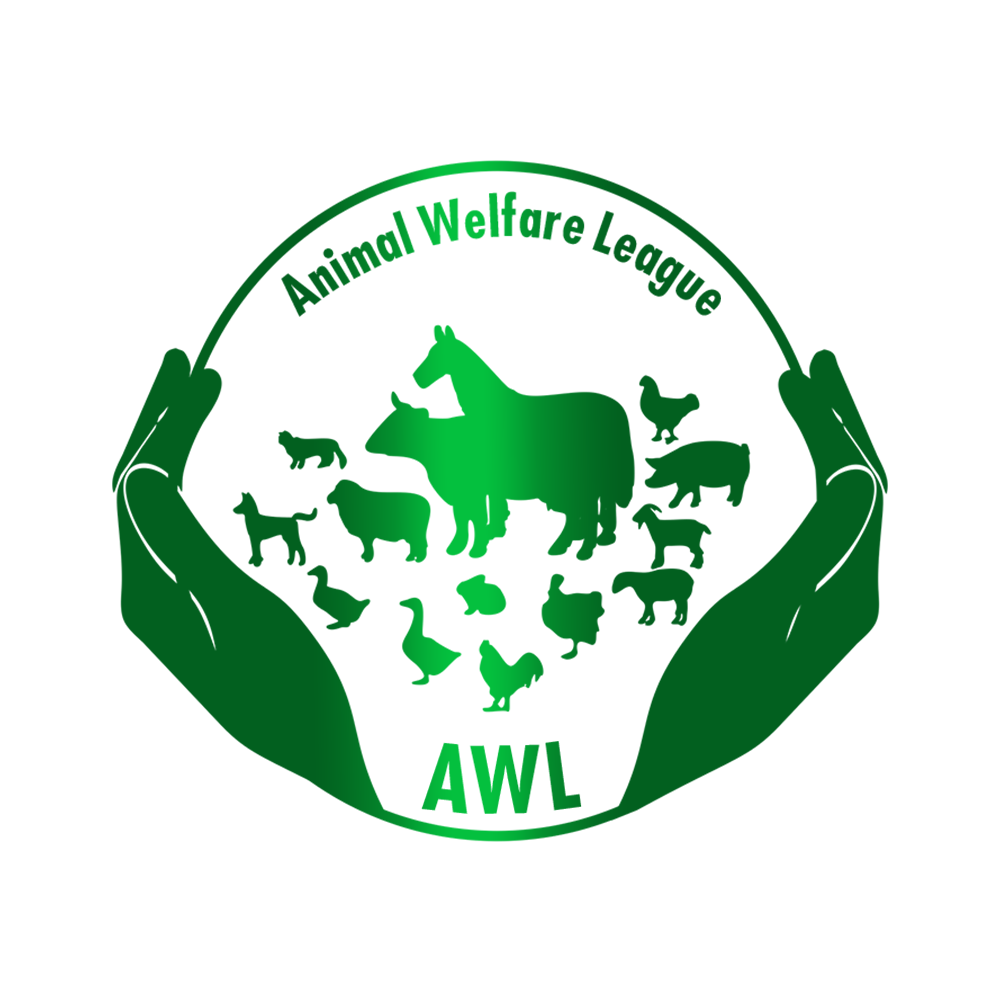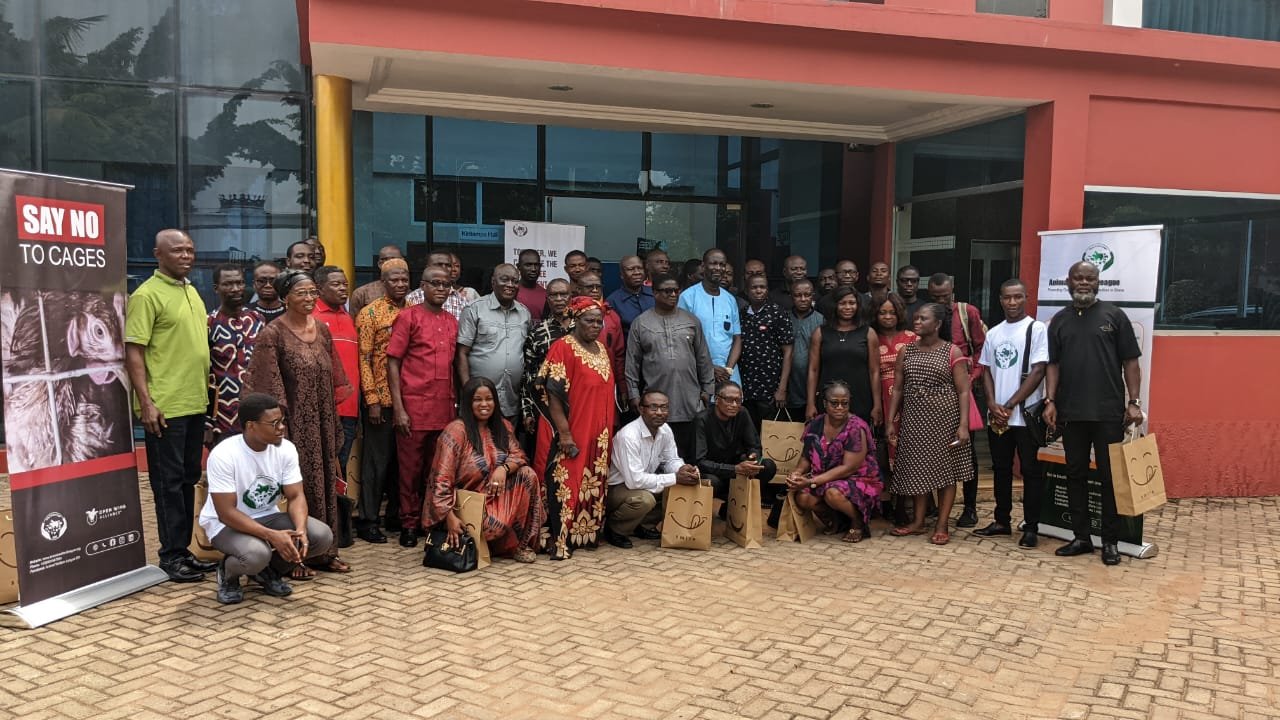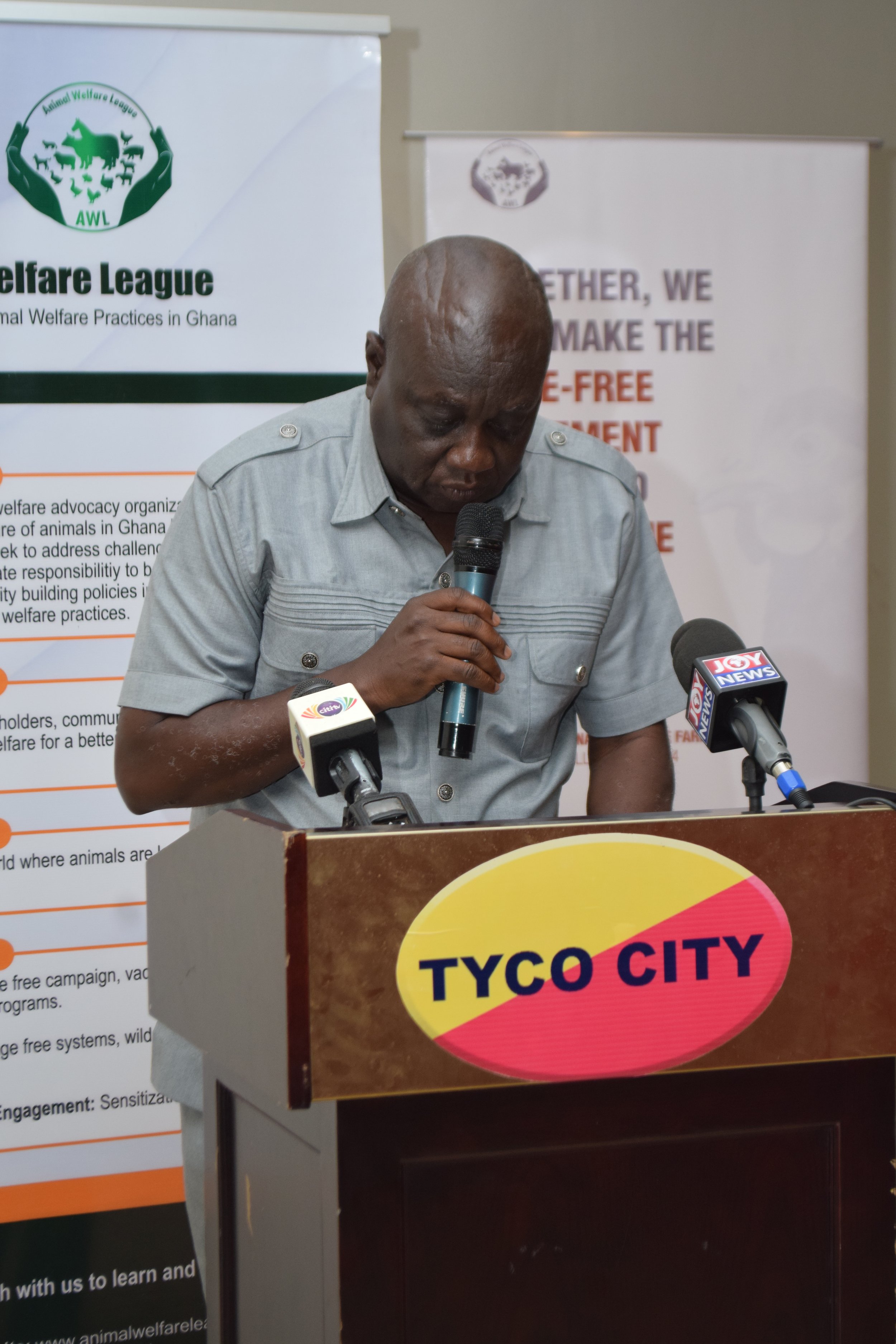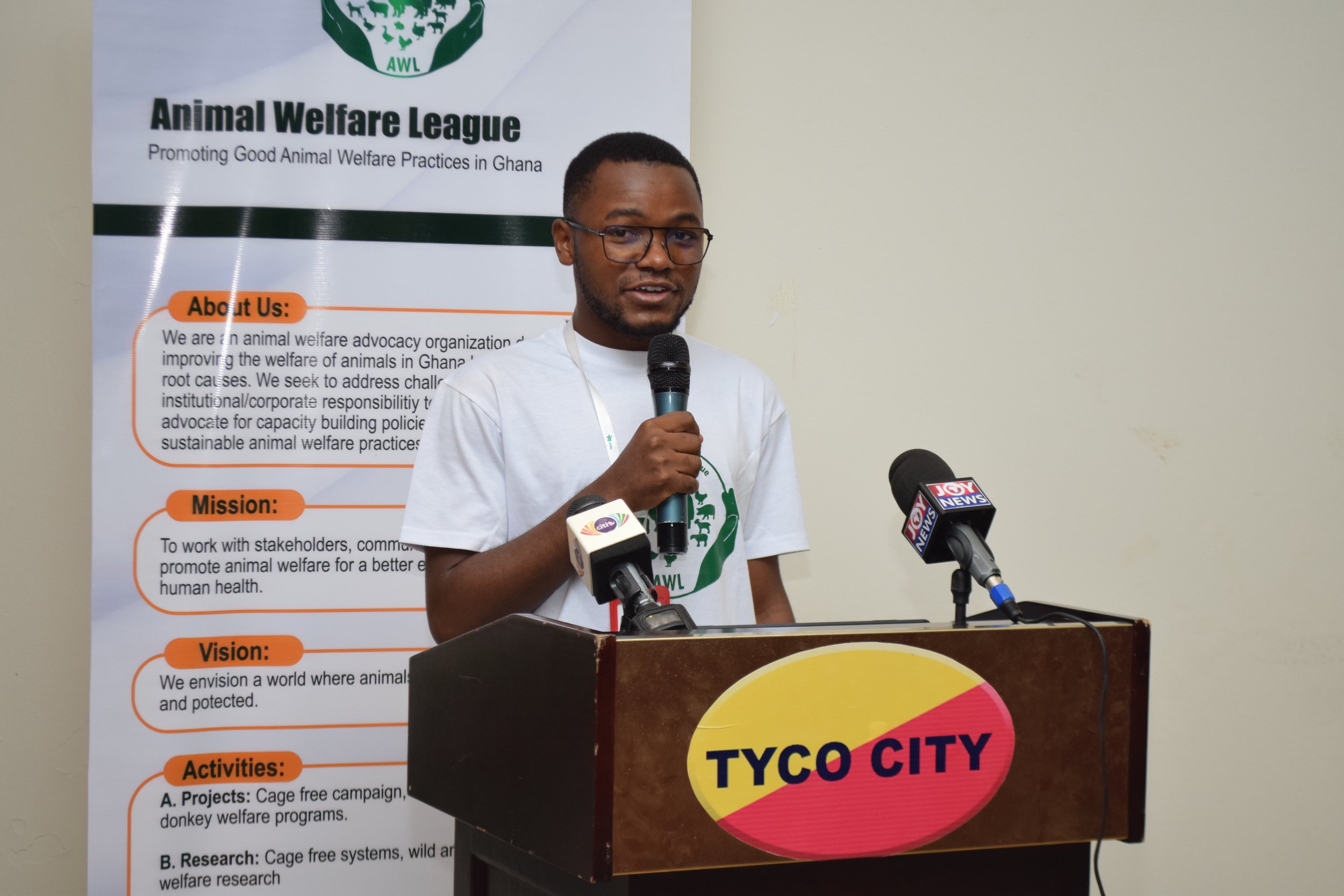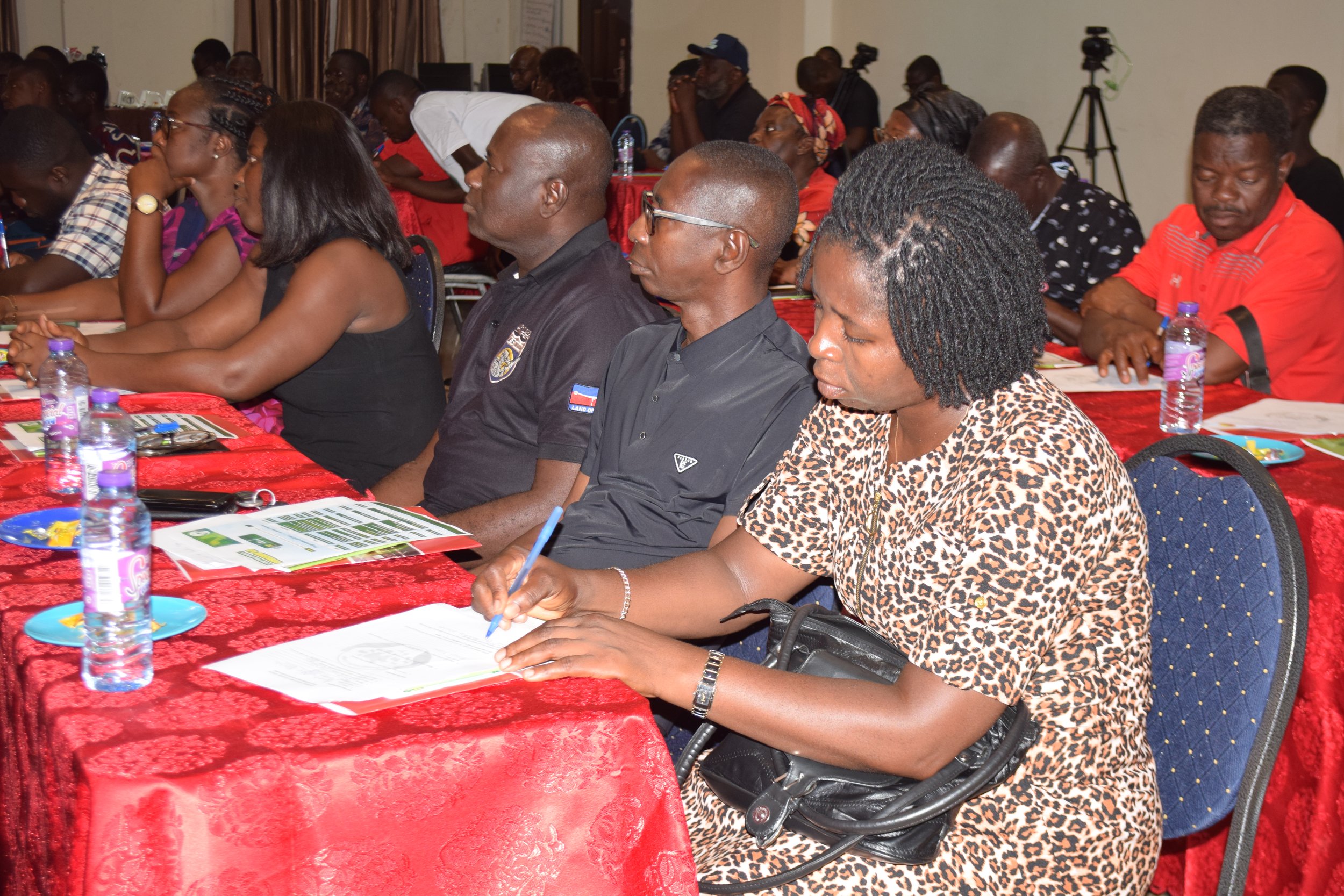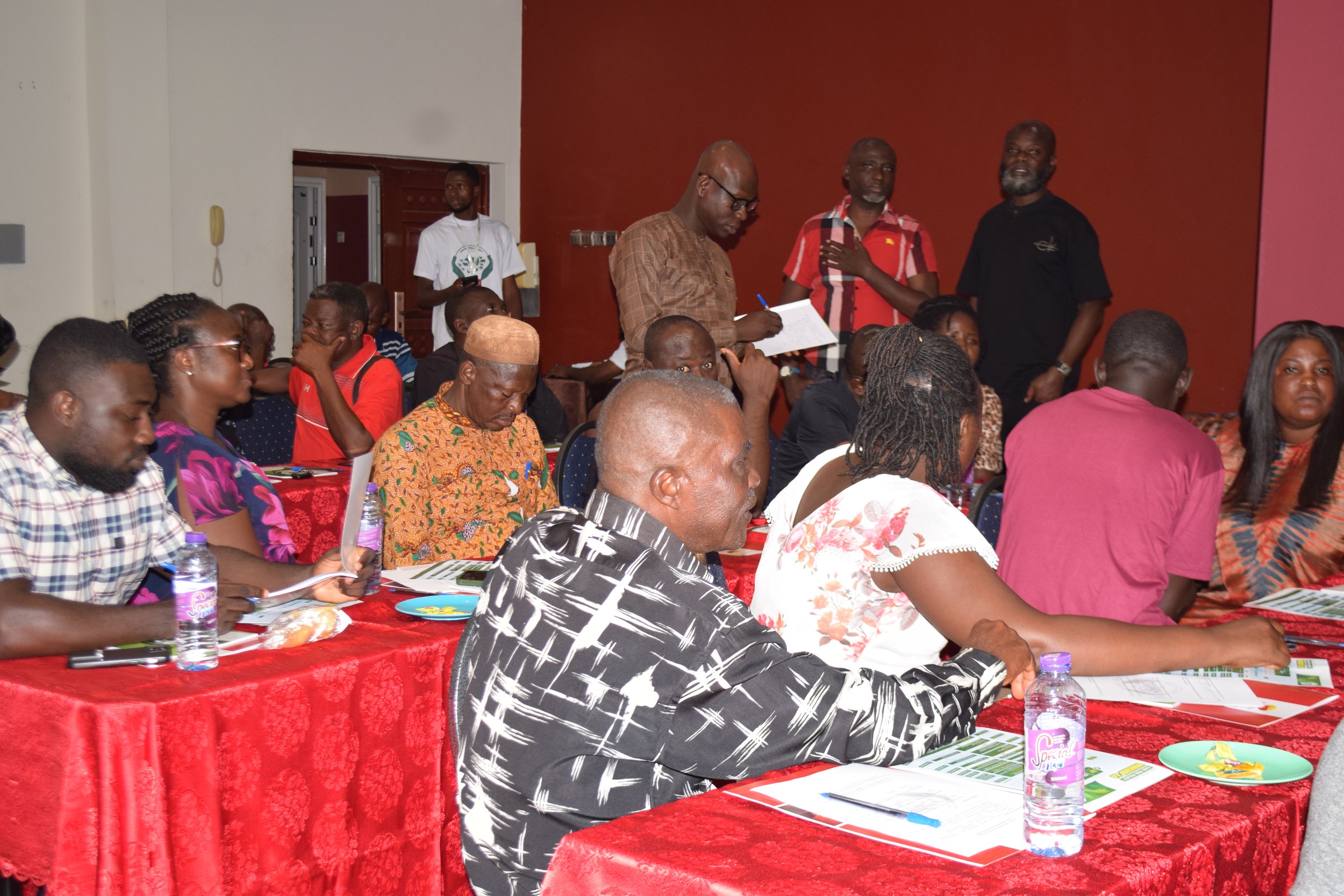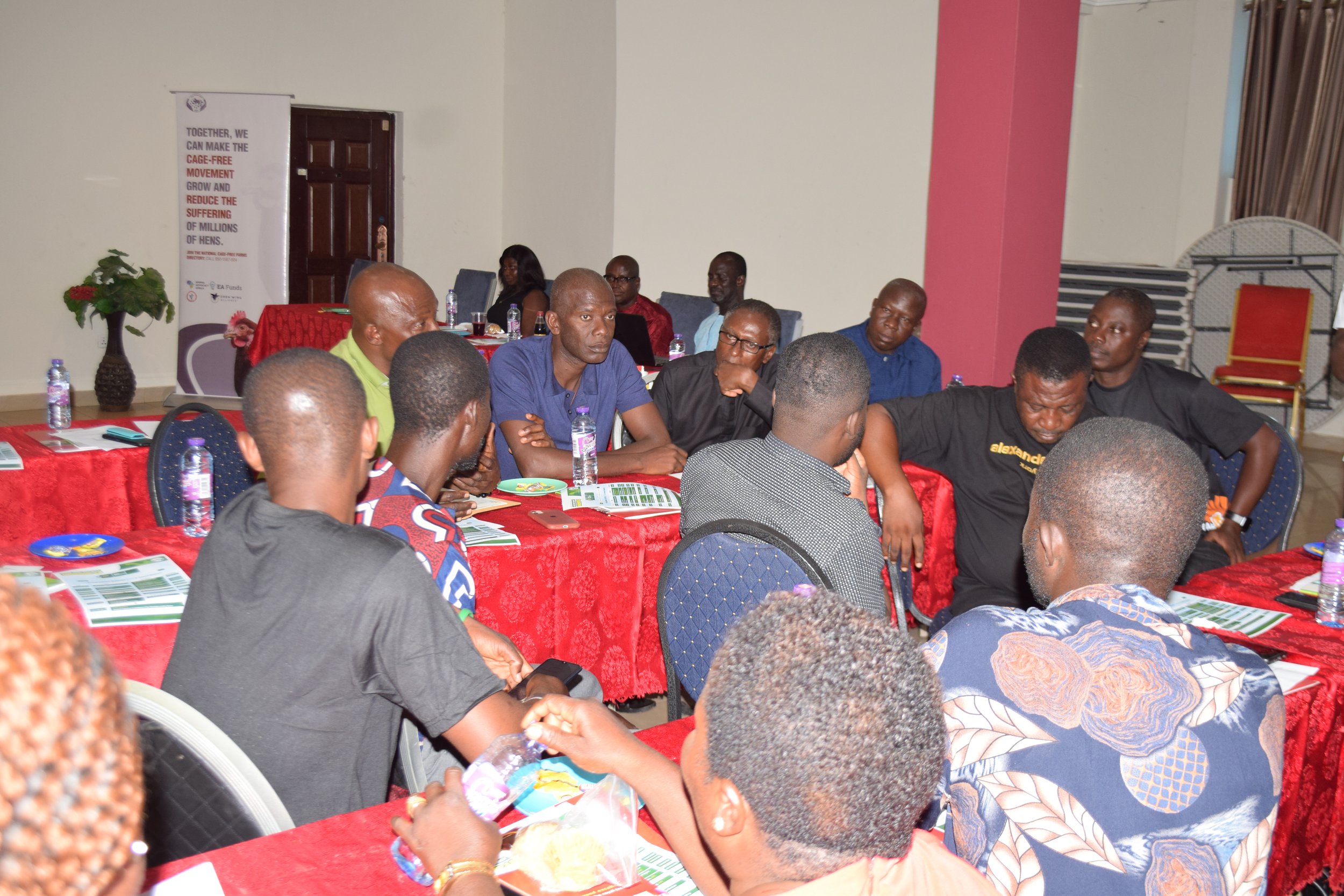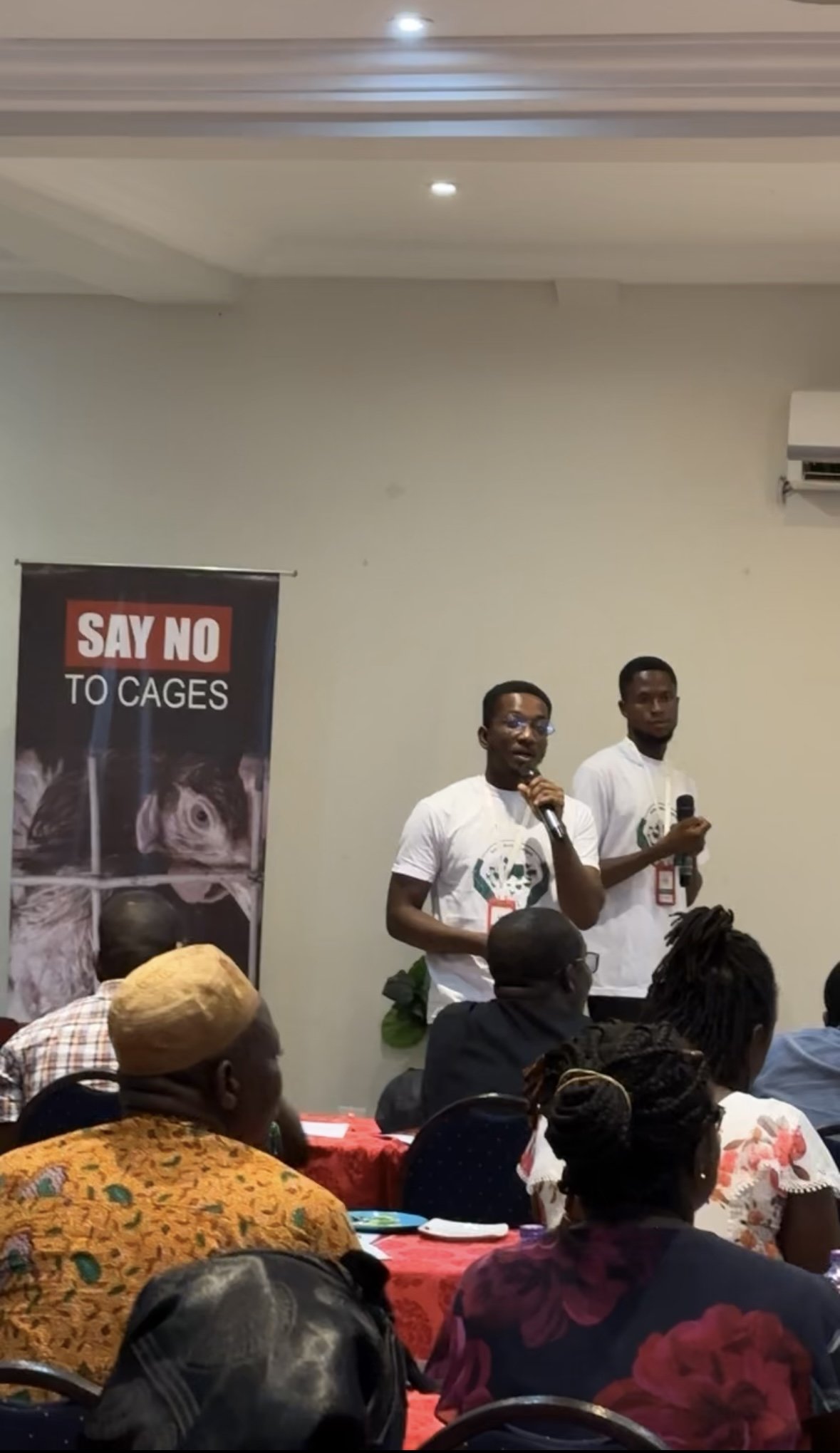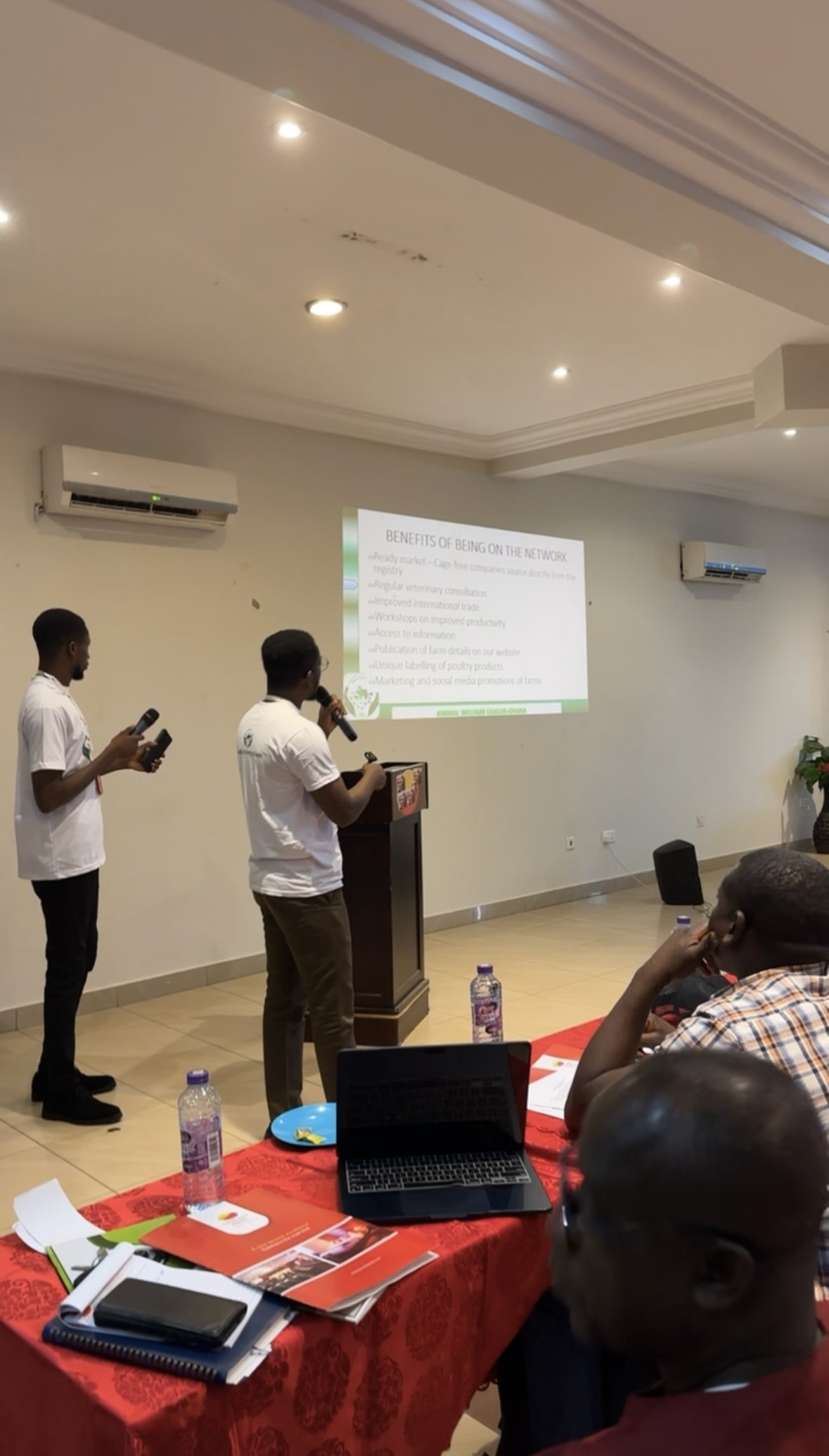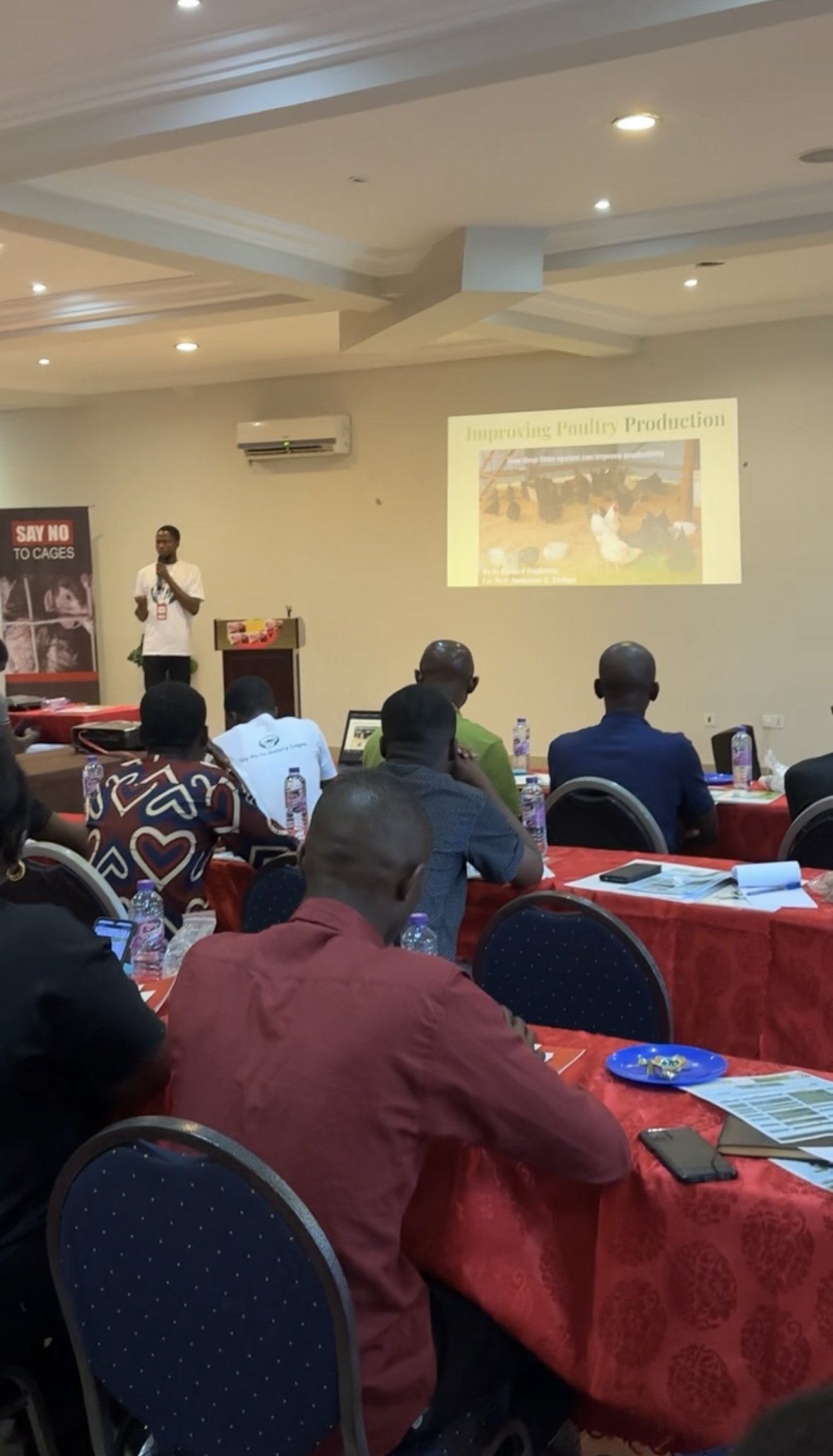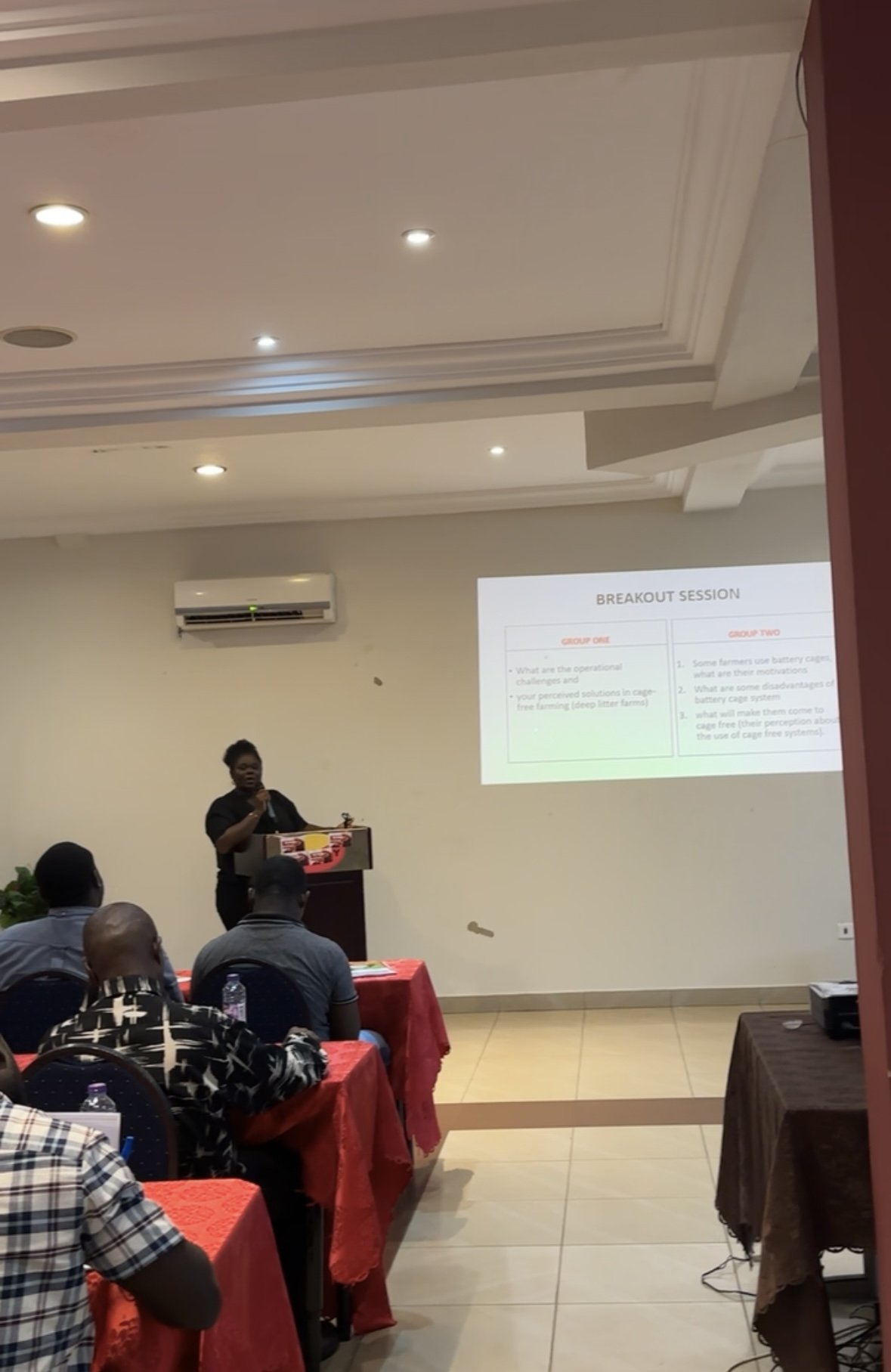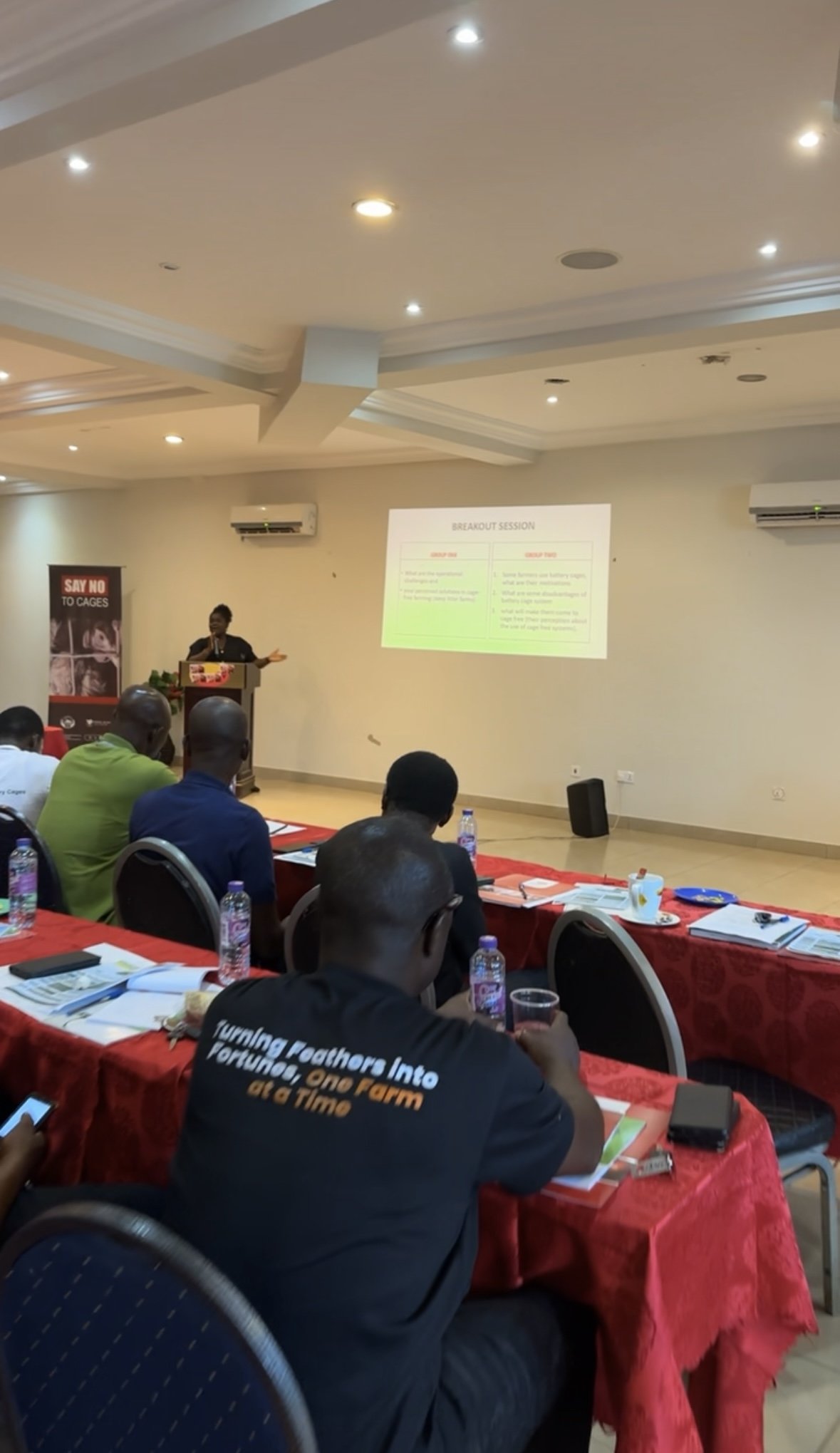CLOSE TO 400,000 HENS COMMITTED TO CAGE FREE HOUSING IN BONO REGION OF GHANA
A group picture from the Bono egg producers’ workshop on 13th March 2024
Introduction
On Wednesday, 13th March 2024, the Animal Welfare League (AWL) organized their fourth Cage-Free project workshop for poultry farmers (egg producers) in the Bono region at the Tyco City Hotel. This workshop aimed to educate poultry farmers about cage-free systems, the need for and benefits of adopting these systems, and how the cruel battery cage system puts immense restrictions on the welfare of laying birds.
The Bono region, located in the middle belt of Ghana, is one of the administrative regions with Sunyani as the capital. It is bordered on the north by the Savannah region, on the west by the Cote d’Ivoire International border, on the east by the Bono East and on the south by the Ahafo region. It is one of the significant regions known for poultry production in Ghana.
From The Workshop
The guest speakers at the workshop included Mr Victor Oppong Adjei, the National President of the Ghana National Association of Poultry Farmers, who was the chairman of the workshop, Dr. Donald Darko Joachim, the Regional Veterinary Officer in the Bono region, who delivered a short address, Dennis Abugri Amenga, Bono Regional Director of Agriculture at the Ministry of Food and Agriculture (MoFA), who also gave a short address and Dr. Stephen Ockling, former Deputy Director of Veterinary Services and Senior Lecturer at the Kwame Nkrumah University of Science and Technology, who gave a presentation on the topic: Biosecurity as a means of improving poultry welfare and productivity in Ghana.
Cage-free farming is very beneficial to both the farmers and the consumers, in addition to the animal itself. It also pushes the country to be in line with international standards and the UN's sustainable development goals. It allows the farmer to see that they are humanely producing birds that they can communicate with, not birds that are trapped in cages and cannot move or fly
Dr Daniel Abiliba, the Director of the Animal Welfare League, stated.
He also added:
Cage-free production is highly productive in the sense that you do not need to put birds in cages for them to lay eggs for us, so by implementing proper husbandry practices, farmers can be reaping the benefits of their investment in cage-free production. It also produces products perceived by consumers to be of good quality; a lot of Ghanaians have no choice but to take up imported frozen chickens that they have no idea where they are coming from.
The national president of the Ghana National Association of Poultry Farmers, Mr Victor Oppong Adjei, also indicated that this cage-free initiative is a good practice and should be adopted.
We have realized over the years that a lot of the birds have always been in cages, and given the small spaces of these cages, which are often occupied by a lot of birds for the rest of their life span, they are often not able to do anything aside from being fed to lay eggs. However, it is evident that by nature, the birds are supposed to be allowed the freedom to exhibit their natural and instinctive behaviours like movement, the flapping of wings and flight, as the denial of these freedoms by the cages subjects the birds to stress and a lot of bone deformities. So, the battery cages present a lot of disadvantages, and as we speak, a lot of countries around the world such as states in America, European Union, Germany, UK are banning the use of these battery cages
Mr Victor Oppong Adjei highlighted.
Cage-Free Directory
During this workshop, farmers were introduced to the National Cage-free Directory, a network set up by the Animal Welfare League to enrol poultry farmers who have committed to the cage-free system of production and whose farm conditions and activities strictly align with the minimum animal welfare standards of the Animal Welfare League, where 37 out of 46 egg producers agreed to sign up for the Cage-Free Directory following the comprehensive introduction. The reported total number of hens in production currently committed to cage-free housing within the Bono Region, as a result, is 393,100 hens. Of these 37 farmers, 26 have a minimum of about 5,000 hens, 10 have a minimum of about 10,000 hens, and the highest producer has a total number of 100,000 hens. Following farm visitations and the onboarding process of poultry farmers to the Directory, the 37 farmers reported a total capacity of over 600,000 birds each production life cycle when operating at full capacity.
Breakout Sessions
Also, there were breakout sessions for farmers to deliberate among themselves on topics ranging from their perceived challenges of the cage-free system of production and their respective solutions, some drivers for the battery cage system adoption by some farmers, the disadvantages of the adoption of the battery cages and the way forward to get farmers transition to the cage-free system of production.
Media Coverage
Media personnel from Onua TV, Atinka TV, Citi TV, JoyNews, Kessben TV, Nimdee FM, and TV3 also covered the workshop, showcasing that low animal welfare standards have a negative impact on animal health, public health, and the environment.
Below are pictures from the workshop day.
